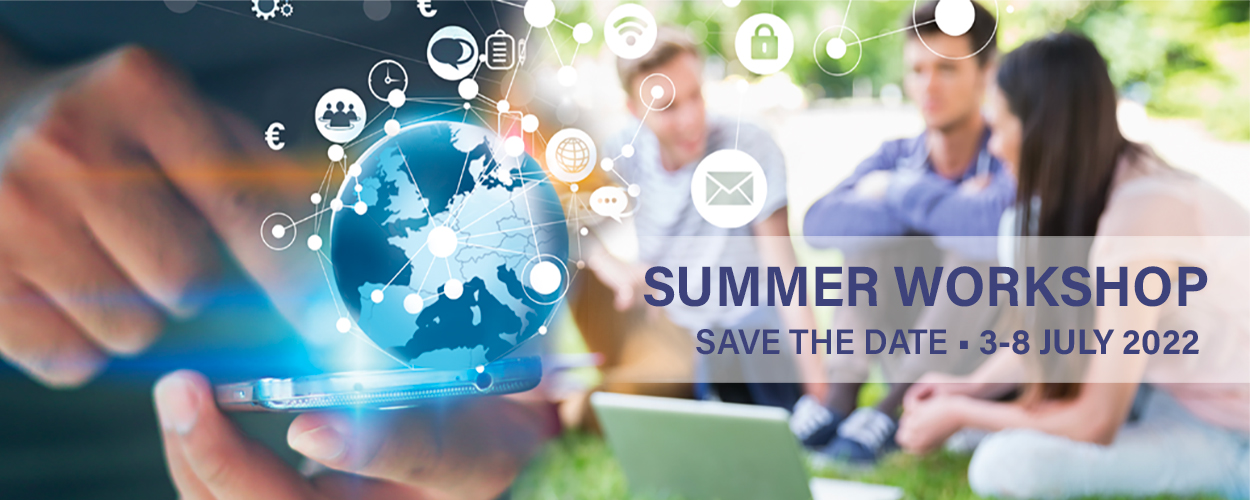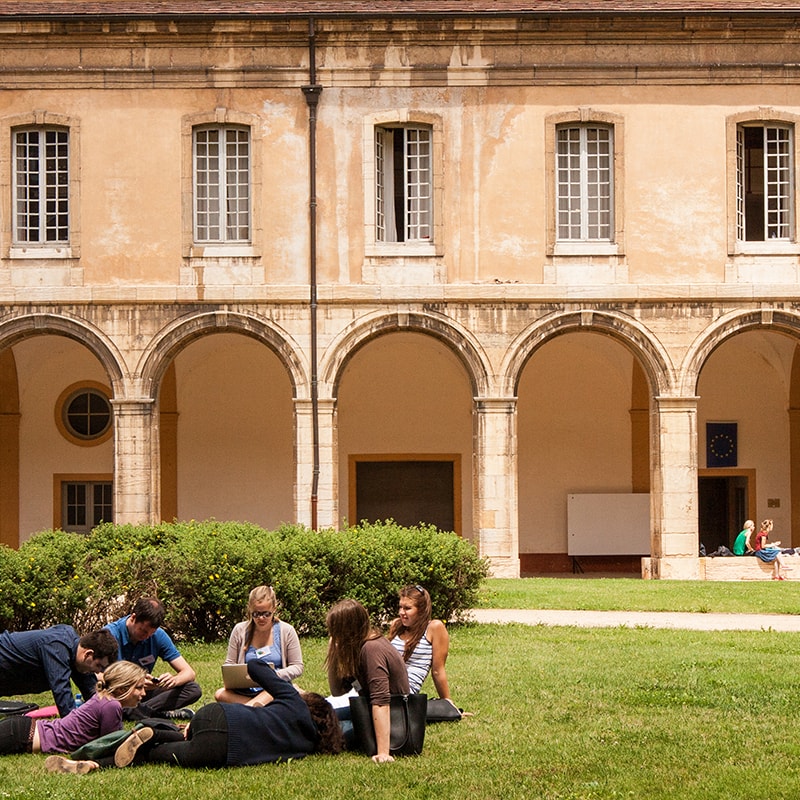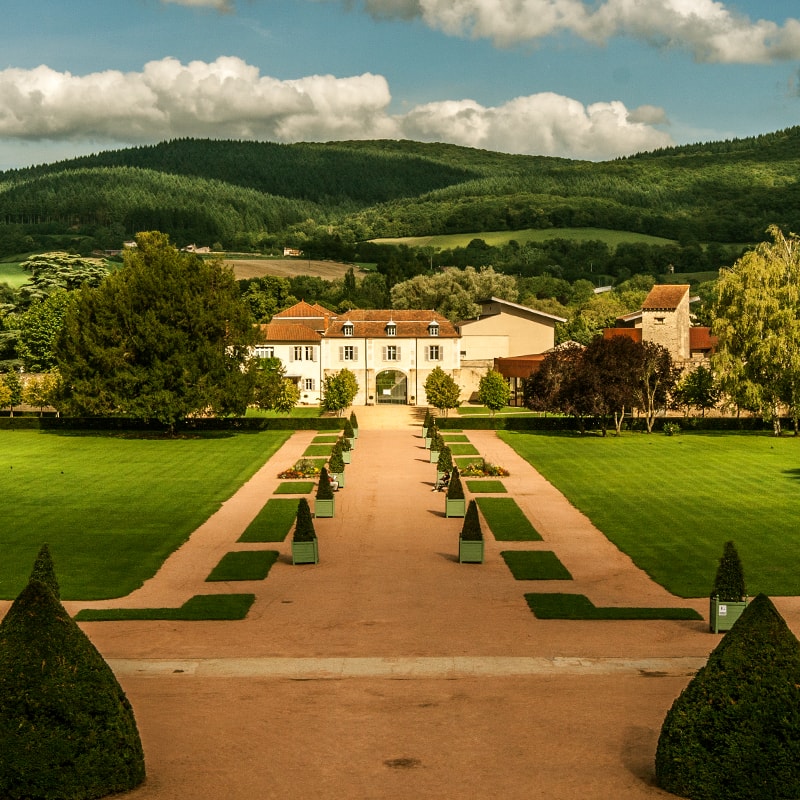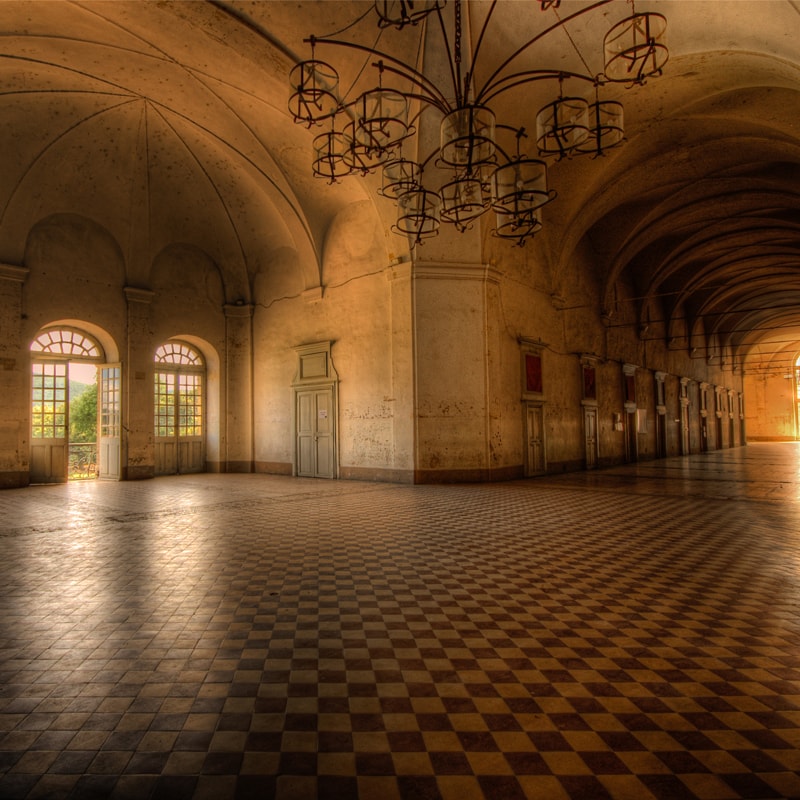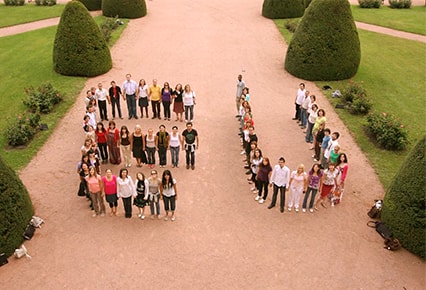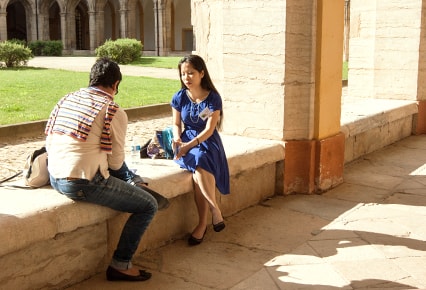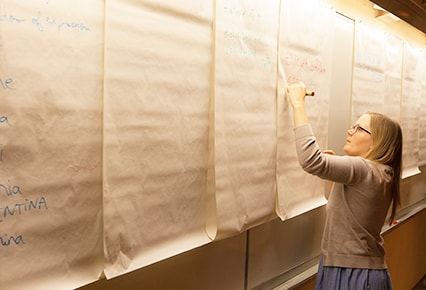Solidarity: a european challenge?
For five days in July, the summer seminar offers a unique opportunity for participants from all over Europe and beyond, to share their thoughts and ideas in order to better understand the challenges currently facing Europe. This year we will be deal with the challenges related to Solidarity. The participants will question the objectives that the Union should set itself to strengthen solidarity between peoples, but also between Member States or between the Union and the rest of the world. The main objective will be to collectively reflect on the need to strengthen solidarity within Europe in order to put forward concrete proposals to achieve this.
We look forward to have you on board!
years of experience
participants
countries
With 21 years of experience and over 850 participants from over 50 countries.
Want to know more?
![]()
ABOUT THE EVENT
Summer school 2022
2022 Topic: Solidarity: a european challenge?
★ Where? Cluny Abbey, Burgundy, France
★ When? Sunday 3 July to Friday 8 July 2022
★ What? See Program
★ How? See Method & Aims
About the Theme
One of the founding fathers of Europe, Jean Monnet, wrote in his memoirs published in 1976: “Europe will be made in crises and it will be the sum of the solutions brought to these crises”.
Indeed, Europe has faced several crises in recent years: the financial crisis, the Euro crisis, the migration crisis, the climate crisis, the Brexit, the Covid pandemic, and now the war in Ukraine. Has Europe grown from these crises?
While the notion of crisis and ‘Europe in crisis’ seem to be increasingly used, we must ask: isn’t the notion of solidarity, which represents the strength of the common European project, often forgotten?
In societies increasingly marked by individualism, European solidarity is present in its many forms: economic, social, environmental, geographical, intergenerational, and through the solidarity between peoples and social groups, at individual, national or international level. Beyond that, it is also the psychological and emotional solidarity, created, among other things, by freedom of movement and exchange, which has strengthened the union of people in hearts and minds. Nevertheless, this ‘European spirit’ does not happen spontaneously. Social tensions, withdrawal reflexes, cracks and controversies in our societies, global threats and challenges are a major challenge for Europe.
During the presentation of the results of the 2011 edition, many actions were proposed by the participants, aiming at improving solidarity within the European Union but also between the European Union and partner countries. These proposals covered three major areas: culture, education and institutions. What about today, are these proposals still relevant in the current context? This year, 11 years later, the participants will review these proposals with the situation of European solidarity today.
Is European solidarity strong enough to meet all the challenges facing our societies? Has it always lived up to our expectations? These different crises have shown that solidarity can operate very differently in different cases. What is the right political level for solidarity to be expressed? How can we reconcile solidarity with personal and collective initiatives? How can this solidarity be maintained when people are experiencing successive crises?
The reflection carried out in Cluny is committed to going beyond the stage of diagnosis. From the observations made in 2011 to those made today, participants will be invited to consider the objectives that the Union should set itself to strengthen solidarity between peoples, but also between Member States or between the Union and the rest of the world. We look forward to a stimulating exchange of views !
The Place
During the summer school, you will live and work in the historical site of the Cluny Abbey, which was a Benedictine monastery in Cluny, Burgundy, France. It was built in the Romanesque style, with three churches built in succession from the 10th to the early 12th centuries.
1100 Years of History
Cluny, a spiritual and political capital in the Middle Ages, is now a major tourist and cultural attraction and a regional equestrian centre in the heart of the land of “Great Art and Good Living”.
Programme
- From 2.00 pm: Welcome of participants, installation
- 6.00 pm: Opening speech – Introduction
- 6.30 pm – 8.00 pm: Opening Conference with Martine Méheut, philosopher, founder of “Citoyennes pour l’Europe”, member of the European Movement France, and Member of the Strategic Orientation Council of the Cycle des Hautes Etudes Européennes of the ENA
- 8.00 pm: Dinner
- Evening: Ice breaking games
- 9.00 am – 10.00 am: Introduction method
- 10.00 am – 11.30 am: Workshop “What solidarity is possible? The past and present of a necessary utopia” with Israel BARROSO, PhD in Human Rights and Global Policies at the Sant’Anna School of Advanced Studies, Pisa.
- 1.30 pm – 3.00 pm: Visit of the Abbey
- 3.15 pm – 4.15 pm : Lecture “Mechanisms of European solidarity”
- 4.30 pm – 7.00 pm: Presentation of the Open Space
- European Evening: Presentation of the countries, discovery and tasting
- 9.00 am – 12.00 am: Negotiation techniques
- 1.30 pm – 2.30 pm: Debrief negotiation
- 3.00 pm – 5.00 pm: Round table “Climate Solidarity”
- 5.00 pm – 7.00 pm: Open Space
- 9.00 am – 12.00 am : Simulation of the European Council
- 2.00 pm – 6.30 pm : Immersion in the field of solidarity, exchanges with European citizens from Southern Burgundy.
- 9.00 am – 12.00 am: Open Space
- 14.00 pm– 16.30 pm: Approval and formatting the final product
- 17.00 pm: Presentation of the results of the summer workshop to invited people and the public: companies, associations and individuals from the region – open to the public
- Closing evening
Departure from Cluny
Aims
The main aims of the summer school of the European College of Cluny are to:
- Share and exchange
- Develop critical thinking skills
- Analyse and evaluate
- Compare and differentiate
- Propose innovative solutions
By coming to Cluny, you will have the opportunity to discover French national heritage and to live a unique multicultural experience with young people from all over Europe.
The Method
The “Cluny method” is the development of collective intelligence that makes use of interdisciplinarity and plurilingualism. The facilitators will invite the participants to develop their autonomy and their self-learning abilities, to appropriate innovative methods of co-construction based on mutual learning.
Conferences, training sessions and working groups will enable you to develop negotiation skills and to gain an overview of the main issues at stake.
How to Apply
- Prepare a CV and a short Cover Letter (in PDF, RTF, DOC format) outlining your motivation to participate in this event.
- Fill out the Application Form.
- That’s it!
Registration deadline: June 25, 2022
WANT TO JOIN US?
Selection Criteria:
★ Minimum age: candidates must be born before 1st January 2004
★ Personal motivation is very important
★ Geographic diversity
★ Linguistic competences: The understanding of both languages is necessary therefore a minimum level of B2 in French or in English is expected (minimum B1 for the other language).
Apart from language skills, no other academic or professional qualifications are required. We explicitly encourage participants from various fields to apply.
What seduced me in the European College of Cluny summer seminar proposal was both the framework and the title.
I really enjoyed the exchanges that the seminar allowed, the idea that we come from very different backgrounds, and not only geographical, and that we share common values. And I really liked the teamwork and I enjoyed it here.
This is the first time I’ve been to Cluny and it’s beautiful.
I really enjoyed exploring even further how the European institutions work and I learned a lot, especially during the course on negotiation and the conference given by MEP Philippe Lamberts.
I met a lot of people and even if I don’t speak French very well, it was easy to switch from one language to another and thus to learn differently.
I am a student in international relations and history and I attended the summer school thanks to Facebook. It was the theme that really inspired me.
I loved the course on negotiation, as well as the atmosphere throughout the seminar. It was a very benevolent atmosphere from beginning to end.
For me, the most impressive course was the Citizen Jury. This is the first time I have played a role and tried to find both solutions and compromises. It was very important to use our listening skills.
At first, it was rather complicated for me to quit the university mold and understand the organisation and teaching methods of this summer seminar, but once the ” culture shock” was over, I found it very interesting. I really learned from the negotiation class and the role-playing. I realised that without prior training, it is very difficult to engage in negotiation work, for example.
This was the first time I attended a summer seminar and the first time I really spoke French outside of my classes. It was very comfortable because when I felt lost, I could easily switch back to English.
I learnt a lot from the Citizen Jury. It was a fairly complete simulation, a good illustration of the difficulties that can be encountered when starting a project construction or negotiation process. This time, even if it wasn’t “real”, we came to some sort of consensus based on compromise, even if it wasn’t very easy.
It was someone from my association who told me about the summer seminar and I am truly convinced that Europe can only be built with “true meetings”. I want to help change things in Europe and advance the idea of Europe among citizens. I am one of those people who, as soon as they are faced with a problem, want to find a solution to it.
So it was important to meet and I particularly enjoyed the group work. It shows that some projects can succeed, or at least move forward. When I arrived here, I thought “when there is a project, there is a way”, I think that even more after a few days of working with other young people.
Here, I have the impression of a great openness of mind: I’ve been here for several days and I cannot distinguish if this openness of mind is due to the fact that we are all very different in our education and our characters, or to the fact that we really come from different countries and different cultures.
Registration Fees:
Limited places, hurry up to register!
Registration:
- fee before May 15, 2022 : 450 €
- fee after May 15, 2022 : 600 €
What You Receive
- Accommodation within the Abbey of Cluny (shared rooms)
- Meals: breakfast, lunch and dinner
- Seminar and Conference access— full access
- Guided tour of the Abbey of Cluny and Museum
- Application fee
- Certificate of participation
Partnerships and Support
![]()
Many well-known personalities support the Convention of Young European Citizens:
- Philippe Lamberts, MEP
- Jan Sokol, Former minister of Education in the Czech Republic
- Vladimir Spidla, Former Prime Minister of the Czech Republic, former European Commissioner
- Bronislaw Geremek, Former minister of Foreign Affairs of Poland, former MEP
- Michel Rocard, Former Prime Minister of France, former MEP
- Rolands Lappuke, Former Ambassador of Latvia in France
- Pavel Fischer, Former Ambassador of the Czech Republic in France
- Viviane Reding, Former MEP, former member of the European Commission
- Pascal Lamy, Former WTO Director-General, former European Commissioner
- Vaclav Havel, Former president of the Czech Republic
- Elmar Brok, MEP
- Pervenche Berès, MEP
The 2011 Convention was held under the patronage of Mr. Herman Van Rompuy, former President of the European Council.

To apply, fill out this Application Form :

